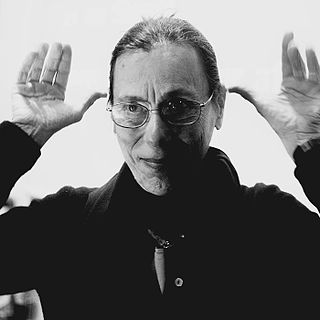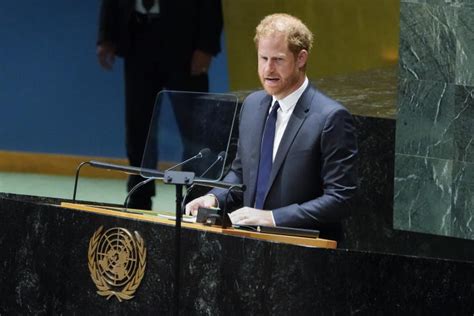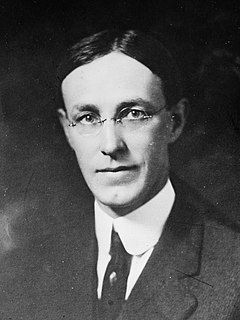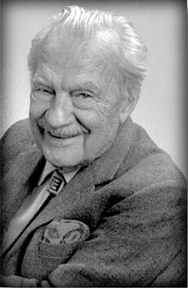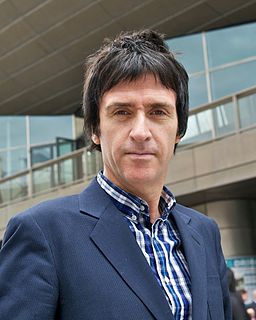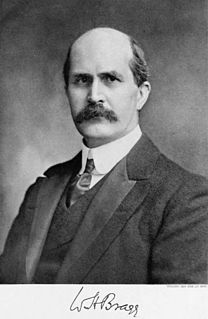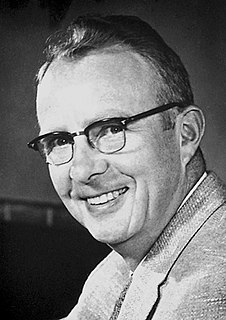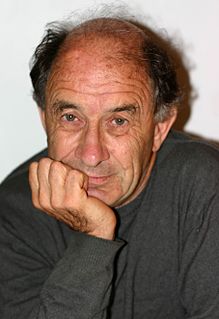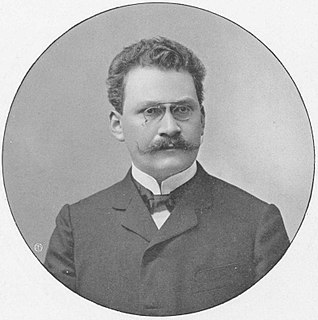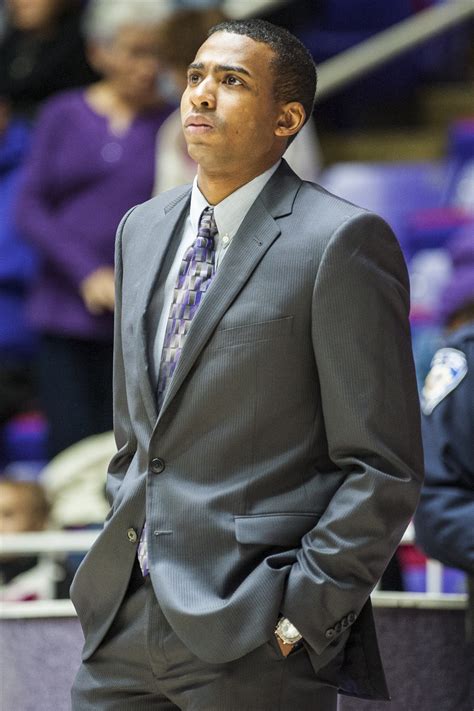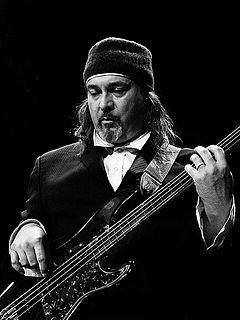Top 704 Experimental Quotes & Sayings - Page 12
Explore popular Experimental quotes.
Last updated on April 21, 2025.
The material which a scientist actually has at his disposal, his laws, his experimental results, his mathematical techniques, his epistemological prejudices, his attitude towards the absurd consequences of the theories which he accepts, is indeterminate in many ways, ambiguous, and never fully separated from the historical background . This material is always contaminated by principles which he does not know and which, if known, would be extremely hard to test.
The experimental film scene was very much misogynistic as well. I don't know if you have read what little attention was given to the films of Joyce Wieland, who was the wife of Michael Snow. Michael was the "genius" and she was not. If you look at the films they're wonderful, but very different. Michael was very proud of the films too, so it was not coming from him. It was coming from the general environment. I think both Chantal Akerman and I shared that. We wanted to find a language, which was the language of women.
Assurance grows by repeated conflict, by our repeated experimental proof of the Lord's power and goodness to save; when we have been brought very low and helped, sorely wounded and healed, cast down and raised again, have given up all hope, and been suddenly snatched from danger, and placed in safety; and when these things have been repeated to us and in us a thousand times over, we begin to learn to trust simply to the word and power of God, beyond and against appearances: and this trust, when habitual and strong, bears the name of assurance; for even assurance has degrees.
Given any rule, however "fundamental" or "necessary" for science, there are always circumstances when it is advisable not only to ignore the rule, but to adopt its opposite. For example, there are circumstances when it is advisable to introduce, elaborate and defend ad hoc hypotheses, or hypotheses which contradict well-established and generally accepted experimental results, or hypotheses whose content is smaller than the content of the existing and empirically adequate alternative, or self-inconsistent hypotheses, and so on.
I've spent most of my life in L.A. and I'm still amazed at things that I don't know about the place. There are a lot of places I've never been to yet and I may never even make it. There's so much here and there's so much of a variety in terms of culture now. It's amazing. It's all here in one big city. In a lot of ways, the city is unique in the world because it's hard to find another city that has the diversity and range. It's a microcosmic planet, if you look at it that way. And in that sense, it's very much an experimental city.
Auroville (City of Dawn) is an 'experimental' township in Viluppuram district in the state of Tamil Nadu, India near Puducherry in South India. It was founded in 1968 by Mirra Richard (since her definitive settling in India called '[The] Mother') and designed by architect Roger Anger. Auroville is meant to be a universal town where men and women of all countries are able to live in peace and progressive harmony, above all creeds, all politics and all nationalities. The purpose of Auroville is to realize human unity.
I should say that feminism gave me permission to deal with my own emotional life and put it up front in certain ways, or use film as a way to examine, at that time, my own heterosexual experience. Lives of Performers was the beginning of that kind of investigation. But also, the film was influenced by the aesthetics and structures of experimental film as that was taking place at the same time. Hollis Frampton was a big influence on me at that time.
Language is virtually always pathological; hence the solution is to move as fast and far as possible from language to experience, from linguistic to experimental or psychological philosophy. In order to know that we are not in the linguistic maze, we need to determine, according to Berkeley, whether the things we are talking about exist; hence we need to look for the relevant perceptions. For him, this usually means retiring into himself and trying to imagine whether x exists, having formed the best definition possible of x.
Life is an experimental journey undertaken involuntarily. It is a journey of the spirit through the material world and, since it is the spirit that travels, it is the spirit that is experienced. That is why there exist contemplative souls who have lived more intensely, more widely, more tumultuously than others who have lived their lives purely externally. The end result is what matters. What one felt was what one experienced. One retires to bed as wearily from having dreamed as from having done hard physical labor. One never lives so intensely as when one has been thinking hard.
The evidence from both approaches, statistical and experimental, does not appear sufficiently significant to me to warrant forsaking the pleasure of smoking. As a matter of fact, if the investigations had been pointed toward some material that I thoroughly dislike, such as parsnips, I still would not feel that evidence of the type presented constituted a reasonable excuse for eliminating the things from my diet. I will still continue to smoke, and if the tobacco companies cease manufacturing their product, I will revert to sweet fern and grape leaves.
I was kind of in an experimental phase with The Disposable Rappers. This is boring to me, because it's true, but when I was a sophomore in high school, I visited my sister in college and saw an improv troupe, and that was a genuine moment for me. It was an actual "Aha!" moment. After I saw that, I said, "I want to do comedy." So The Disposable Rappers started doing improv in addition to rapping, and when I went to college, I very specifically went saying "I want to join a comedy group."
I think I'm really part of a whole generational movement in a way. I think a lot of other people since and during this time have gotten interested in writing what we can still call experimental music. It's not commercial music. And it's really a concert music, but a concert music for our time. And wanting to find the audience, because we've discovered the audience is really there. Those became really clear with Einstein on the Beach.
Whatever may be the immediate gains and losses, the dangers to our safety arising from political suppression are always greater than the dangers to that safety arising from political freedom. Suppression is always foolish. Freedom is always wise. That is the faith, the experimental faith, by which we Americans have undertaken to live.
Observation and theory get on best when they are mixed together, both helping one another in the pursuit of truth. It is a good rule not to put overmuch confidence in a theory until it has been confirmed by observation. I hope I shall not shock the experimental physicists too much if I add that it is also a good rule not to put overmuch confidence in the observational results that are put forward until they have been confirmed by theory.
But, contrary to the lady's prejudices about the engineering profession, the fact is that quite some time ago the tables were turned between theory and applications in the physical sciences. Since World War II the discoveries that have changed the world are not made so much in lofty halls of theoretical physics as in the less-noticed labs of engineering and experimental physics. The roles of pure and applied science have been reversed; they are no longer what they were in the golden age of physics, in the age of Einstein, Schrödinger, Fermi and Dirac.
I hadn't had any course work in ceramics. I had no courses in art education but I wasn't going to let this chance to have a job pass me by. I went out and learned and I stayed one step ahead of the students by reading and I got to be pretty proficient at throwing on the wheel and making my own glazes, ordering the chemicals and having the students go out and dig and process their clay, and doing things that they weren't teaching at Howard University. So Talladega College opened up my whole sensibility about experimental teaching.
If we could travel into the past, it's mind-boggling what would be possible. For one thing, history would become an experimental science, which it certainly isn't today. The possible insights into our own past and nature and origins would be dazzling. For another, we would be facing the deep paradoxes of interfering with the scheme of causality that has led to our own time and ourselves. I have no idea whether it's possible, but it's certainly worth exploring.
I haven't been walking around for years with some burning desire to do a solo record. If I had, maybe I'd have made a record that was experimental. Usually, the idea of a solo record is to get some weird stuff out of your system, but I don't think like that. I wasn't interested in making something that was a hard listen - maybe I'll get around to that some other time. I wanted it to sound effortless, not like I was trying to reinvent the wheel.
Science is experimental, moving forward step-by-step, making trial and learning through success and failure. Is not this also the way of religion, and especially of the Christian religion? The writings of those who preach the religion have from the very beginning insisted that it is to be proved by experience. If a man is drawn towards honour and courage and endurance, justice, mercy, and charity, let him follow the way of Christ and find out for himself. No findings in science hinder him in that way.
Most of us who become experimental physicists do so for two reasons; we love the tools of physics because to us they have intrinsic beauty, and we dream of finding new secrets of nature as important and as exciting as those uncovered by our scientific heroes. But we walk a narrow path with pitfalls on either side. If we spend all our time developing equipment, we risk the appellation of "plumber," and if we merely use the tools developed by others, we risk the censure of our peers for being parasitic.
It is known to all persons who are conversant in experimental philosophy, that there are many little attentions and precautions necessary to be observed in the conducting of experiments, which cannot well be described in words, but which it is needless to describe, since practice will necessarily suggest them; though, like all other arts in which the hands and fingers are made use of, it is only much practice that can enable a person to go through complex experiments, of this or any kind, with ease and readiness.
I've discovered that like every writer, I'm helpless MYSELF - and that means I find myself unconsciously or semi-consciously repeating motifs and themes and even using certain words or images recurrently in my work, no matter how much I think I'm starting fresh. But I've always admired artists who made a specific sport of trying to visit different kinds of genres or mediums or modes - not just 'western' or 'detective', but comedy/tragedy, epic and miniature, traditional/experimental.
If you look at the last 150 years, about every 30 years or so, a new scientific discipline emerges that starts spinning out technologies and capturing people's imaginations. Go back to 1900: That industry was chemistry. People had chemistry sets. In the 1930s, it was the rise of physics and physicists. They build on each other. Chemists laid the experimental understanding for the physicists to build their theories. It was three physicists who invented the transistor in 1947. That started the information revolution. Today, kids get computers.
We call it EPCOT, spelled E-P-C-O-T: Experimental Prototype Community of Tomorrow. Here it is in larger scale. EPCOT will take its cue from the new ideas and new technologies that are now emerging from the creative centers of American industry. It will be a community of tomorrow that will never be completed, but will always be introducing and testing and demonstrating new materials and systems. And EPCOT will always be a showcase to the world for the ingenuity and imagination of American free enterprise.
The rigid electron is in my view a monster in relation to Maxwell's equations, whose innermost harmony is the principle of relativity... the rigid electron is no working hypothesis, but a working hindrance. Approaching Maxwell's equations with the concept of the rigid electron seems to me the same thing as going to a concert with your ears stopped up with cotton wool. We must admire the courage and the power of the school of the rigid electron which leaps across the widest mathematical hurdles with fabulous hypotheses, with the hope to land safely over there on experimental-physical ground.
When Scott and I started, every time we performed we wrote a whole new bit. We didn't know this wasn't the way things were done because we were just starting. But we needed the new material anyway. And it's nice, every time that Matt Besser does the show he does a whole new bit. And it's nice to offer up a place where people can be that experimental while offering some solid, proven comedy as well.
Whatever experimental film aromas cloaked my movies were because I'm a gleefully clumsy, primitive filmmaker. I really like traditional pleasingly narrative films, but I also just couldn't resist throwing in the disruptive. It seems to me that art-house film is at its glorious zenith right now, maybe it can even get better? There's just so many good films, you know Cemetery Of Splendour, Arabian Nights, Miguel Gomes, just so much great work coming out.
That is a horrible thing in a way, but it is the one thing poets can bring back to experience, this intense focus on language, which activates words as a portal back into experience. It's a mysterious process that's very hard to articulate, because it's focused entirely on the material of language in a way, but in the interests not just of language itself whatever that would mean - that's the mistake, by the way, that so many so-called "experimental" poets make - but in service to human experience.
A large part of California is a sensual state. It has a huge range of geographical features and in addition to the deserts and the mountains and the huge coast line. The fact that we don't have harsh seasons, like they have in the East, means you can have convertible cars. There's more sunshine, per year here, and it affects people psychologically and physically. I think California has always been an attractive place for many, a lot of strange cults have been here over the years. Again, it's an experimental place.
Any chemist reading this book can see, in some detail, how I have spent most of my mature life. They can become familiar with the quality of my mind and imagination. They can make judgements about my research abilities. They can tell how well I have documented my claims of experimental results. Any scientist can redo my experiments to see if they still work-and this has happened! I know of no other field in which contributions to world culture are so clearly on exhibit, so cumulative, and so subject to verification.
Physical science enjoys the distinction of being the most fundamental of the experimental sciences, and its laws are obeyed universally, so far as is known, not merely by inanimate things, but also by living organisms, in their minutest parts, as single individuals, and also as whole communities. It results from this that, however complicated a series of phenomena may be and however many other sciences may enter into its complete presentation, the purely physical aspect, or the application of the known laws of matter and energy, can always be legitimately separated from the other aspects.
17th century philosophers were not in a position to understand the mind as well as we can today, since the advent of experimental methods in psychology. It shows no disrespect for the brilliance of Descartes or Kant to acknowledge that the psychology which they worked with was primitive by comparison with what is available today in the cognitive sciences, any more than it shows disrespect for the brilliance of Aristotle to acknowledge that the physics he worked with does not compare with that of Newton or Einstein.
I went back to Jamaica after living in New York and started to work on experimental stuff and basically I grew as a filmmaker. I went to film school; I was a PA on a lot of projects and I worked so hard, you know, you're young and I learned from different mentors. And luck put me in the position to work with amazing people. One of my mentors by the name of Little X, who took me under his wing after I came out of film school and moved to New York. I worked in videos for Jay-Z, Pharrell to Busta Rhymes and Wyclef. I quickly realized how much I wanted to make films instead of music videos.
I do not ... reject the use of statistics in medicine, but I condemn not trying to get beyond them and believing in statistics as the foundation of medical science. ... Statistics ... apply only to cases in which the cause of the facts observed is still [uncertain or] indeterminate. ... There will always be some indeterminism ... in all the sciences, and more in medicine than in any other. But man's intellectual conquest consists in lessening and driving back indeterminism in proportion as he gains ground for determinism by the help of the experimental method.
We shall see that the mathematical treatment of the subject [of electricity] has been greatly developed by writers who express themselves in terms of the 'Two Fluids' theory. Their results, however, have been deduced entirely from data which can be proved by experiment, and which must therefore be true, whether we adopt the theory of two fluids or not. The experimental verification of the mathematical results therefore is no evidence for or against the peculiar doctrines of this theory.
The ‘experimental’ writer, then, is simply following the story’s commands to the best of his human ability. The writer is not the story, the story is the story. See? Sometimes this is very hard to accept and sometimes too easy. On the one hand, there’s the writer who can’t face his fate: that the telling of a story has nothing at all to do with him; on the other hand, there’s the one who faces it too well: that the telling of the story has nothing at all to do with him
Obviously, it's had a huge effect on repetitive music or dance music or house music. Ambient in the last ten years has infiltrated into all those repetitive musics. I don't know what part it plays in pop necessarily but I'm sure there's some connection. But in all the music that deals with experimental repetition, drum and bass, dub, various kinds of house music, there's always been a quality of atmosphere and ambience. I think it's infiltrated that pretty heavily.
Our goals should stretch us bit by bit. So often when we think we have encountered a ceiling, it is really a psychological or experimental barrier that we have built ourselves. We built it and we can remove it. Just as correct principles, when applied, carry their own witness that they are true, so do correct personal improvement programs. But we must not expect personal improvement without pain or some 'remodeling.' We can't expect to have the thrills of revealed religion without the theology. We cannot expect to have the soul stretching without Christian service.
The experimental investigation by which Ampere established the law of the mechanical action between electric currents is one of the most brilliant achievements in science. The whole, theory and experiment, seems as if it had leaped, full grown and full armed, from the brain of the 'Newton of Electricity'. It is perfect in form, and unassailable in accuracy, and it is summed up in a formula from which all the phenomena may be deduced, and which must always remain the cardinal formula of electro-dynamics.
Physics has entered a remarkable era. Ideas that were once the realm of science fiction are now entering our theoretical ? and maybe even experimental ? grasp. Brand-new theoretical discoveries about extra dimensions have irreversibly changed how particle physicists, astrophysicists, and cosmologists now think about the world. The sheer number and pace of discoveries tells us that we've most likely only scratched the surface of the wondrous possibilities that lie in store. Ideas have taken on a life of their own.
The population explosion is an ecological phenomenon of displacement. Unless we solve that ecological problem of displacing people - to build huge dams, to build motorways, to take away what people need in order to survive - we will keep pumping more and more money into population programs. We will have more and more coercive and violent methods through which women's bodies are treated as experimental grounds for new contraceptives. Yet we will not have a solution to the problem of numbers.
Some people will know exactly what they want to do at a very young age, but the odds are low. I feel like people in their early- to mid-20s are very earnest. They’re very serious, and they want to feel like they’ve accomplished a lot at a very young age rather than just trying to figure stuff out. So I try to push them toward a more experimental attitude.
I met Michael Snow and Stan Brakhage the second day after I arrived, you know. I had never seen or heard of Brakhage. For me, it was a revolution, because I was well educated in film, but American-style experimental film was known to me in the abstract, and I had seen practically nothing. I had seen a film then that Noël Burch had found and was distributing called Echoes of Silence. It was a beautiful film, three hours long. It goes forever and it was in black and white, very grainy, and I saw that film and I thought...it was not New Wave. It was really a new concept of cinema.





